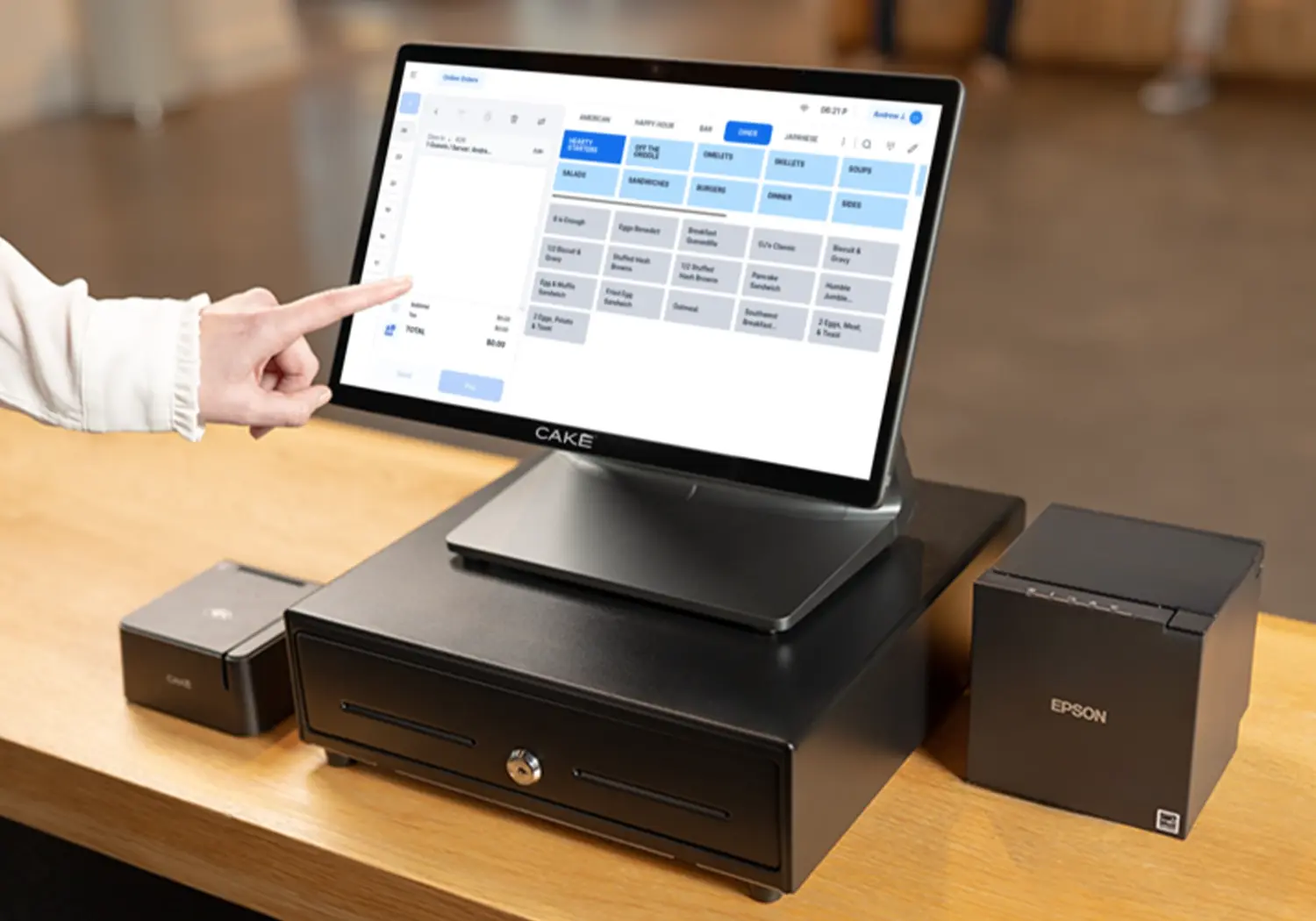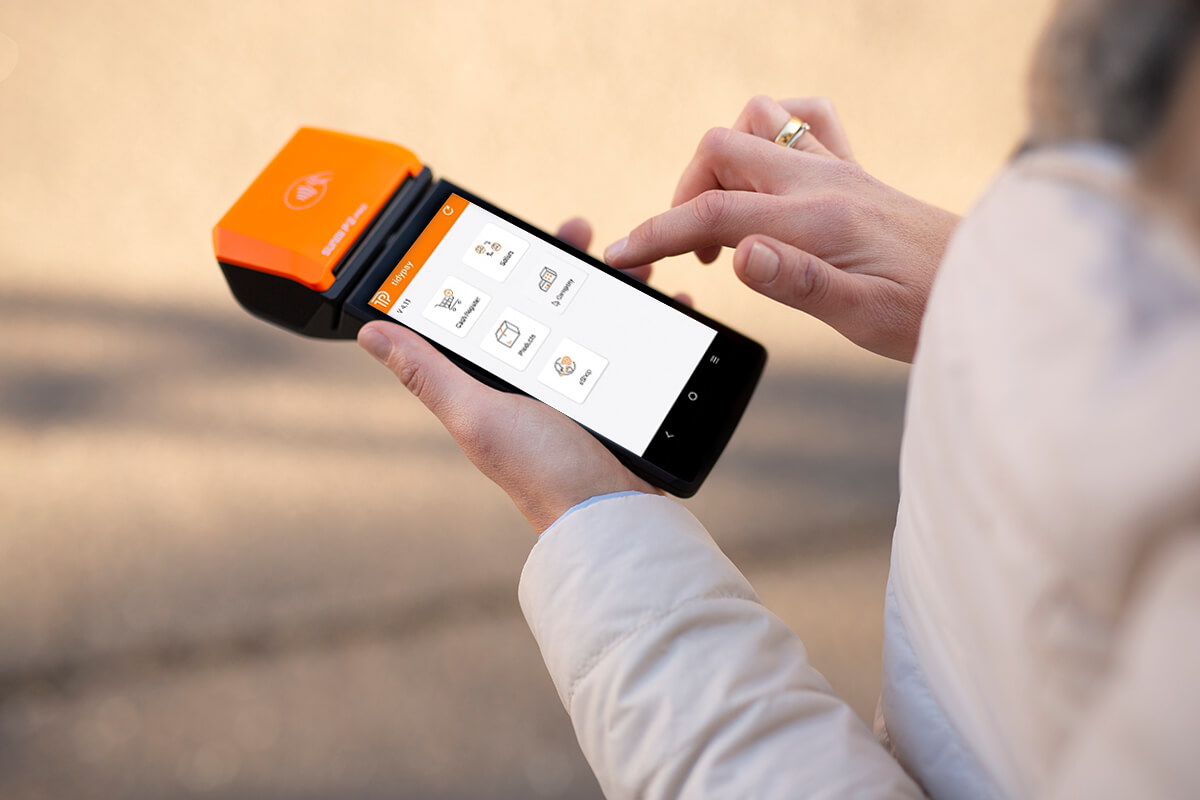The Only Guide for Clover Pos

Restaurant POS: Retail Point-Of-Sale Solutions Streamline Deals
Some Ideas on Pos System For Small Business You Should Know

Hardware Parts of a Point of Sale System What makes a POS system tick? It's not simply software application; the hardware plays a starring role. Think about it as the body to the software application's brain. Without the best hardware, even the most advanced POS software application is just a quite face. Necessary POS Hardware So, what are the must-haves? Let's simplify. The main processing system, often a computer system or tablet, is the heart of the operation. The display or touchscreen show permits personnel to engage with the system. A barcode scanner speeds up the checkout process. Keep in mind the days click here of manually going into each code? The reliable invoice printer supplies customers with a record of their purchase. A cash drawer keeps your money safe and arranged. A card reader allows consumers to pay with credit or debit cards. Diving Deeper: Beyond the Essential But wait, there's more! Depending on your service, you may require customized hardware. A dining establishment may incorporate kitchen printers to relay orders, while a retail shop might utilize label printers for item tagging. Ever question how your regional bakeshop instantly prints those delicious-looking labels? Picking the Right Hardware: A Balancing Act Selecting the ideal hardware isn't practically purchasing the most pricey devices. It's about finding the sweet spot in between functionality, durability, and spending plan. A little company just beginning may go with a more fundamental setup, while a high-volume merchant will require robust, high-performance devices. Is it better to buy new or used? Consider your choices carefully. A brand-new system offers the latest innovation and guarantee protection, but a refurbished system can save you cash. The Future of POS Hardware What does the future hold? Expect to see a lot more integration with mobile phones, biometric scanners for staff member authentication, and advanced analytics dashboards displayed on bigger, clearer screens. Envision a world where stock is instantly updated in real-time as products are scanned-- a world where you can track your very popular item from throughout the world. The possibilities are endless, and the hardware is continually developing to meet the needs of today's companies. Are you ready to update your point of sale system?
Software Features and Capabilities: The Heart of Your POS System
Ever watch an experienced barista move through a busy early morning rush? Their secret isn't just caffeine; it's a smooth dance with their POS system. The software application is the conductor of your company symphony, managing whatever from sales to stock. What notes should you be listening for? What capabilities truly matter in today's market?
Inventory Management: Beyond Counting Beans
Forget spreadsheets that haunt your dreams. Modern POS systems offer real-time inventory tracking, informing you when your stock of artisanal coffee beans dips precariously low. Consider it as a digital guardian angel, avoiding those uncomfortable "Sorry, we're out!" moments to clients. What if you could likewise predict demand based upon historic information? Many systems now offer forecasting tools, an effective weapon against overstocking and lost sales. This assists avoid the circumstance of running out of popular items or building up excess stock of slow-moving products, both of which can constrain money flow and area.
Sales Reporting and Analytics: Translating the Information
Sales information is the new gold, and your POS system is the miner. Forget feeling in one's bones just how much you sold today. Dive deep into the information to uncover trends, recognize your best-selling items, and understand client habits. Which menu item sets completely with the everyday special? Which promotion resonated most with your clientele? These insights are not just fascinating; they're actionable intelligence. Without reliable sales reporting, browsing the complexities of organization decision-making ends up being like cruising without a compass, increasing the opportunity of mistakes and missed opportunities.
Client Relationship Management (CRM): Building Bridges, Not Walls
Keeping in mind a routine client's name and favorite order is captivating, however scaling that personal touch is difficult. POS systems with CRM capabilities enable you to track consumer purchase history, preferences, and even birthdays. Envision automatically providing a discount on their birthday-- a small gesture that fosters loyalty and encourages repeat service. There is the prospective snag of poor data quality, which can lead to unreliable consumer profiles and ineffective marketing efforts.
Payment Processing: Enhancing the Transaction
The checkout experience can make or break a sale. Smooth combination with different payment techniques-- charge card, mobile wallets, even copyright-- is non-negotiable. Can your system manage split payments? Does it offer safe tokenization to secure client data? A cumbersome payment process is like striking a sour note in your service symphony, possibly disrupting the entire performance. Ensuring compatibility with progressing payment technologies and adherence to security standards are critical for preserving client trust and operational efficiency.
Staff Member Management: Keeping the Group in Sync
From clocking in and out to handling approvals and tracking performance, worker management includes improve operations and enhance accountability. Is scheduling a headache? Numerous POS systems provide integrated scheduling tools, optimizing staffing levels based upon forecasted demand. A typical challenge that is often ignored is the challenge of incorporating employee management functionalities with payroll systems, which can cause mistakes and inefficiencies in wage computations.
Advanced Features: Leveling Up Your Operations
- Table Management: Suitable for dining establishments, this feature allows you to picture your dining-room, track table status, and handle reservations.
- Loyalty Programs: Reward your finest clients and encourage repeat business with integrated commitment programs.
- Online Purchasing Integration: Effortlessly incorporate your POS system with online purchasing platforms to broaden your reach.
Picking the best POS system is about more than just functionality; it has to do with discovering a partner that can grow with your service. Consider your current requirements, anticipate future development, and don't hesitate to ask the difficult questions. The ideal software can change your service from a chaotic cacophony into a harmonious work of art.
Industry-Specific POS System Applications
Believe of the regional pastry shop, dynamic with early morning clients yearning fresh croissants. A generic POS system might handle transactions, however can it manage complicated dishes, track ingredient inventory, or automatically change production schedules based on sales data? Probably not. That is where the appeal of industry-specific POS systems shines.
Dining establishments and Hospitality
For bustling restaurants, speed and accuracy are vital. How many times have you seen servers juggling orders, modifications, and splitting costs, all while trying to supply outstanding service? A restaurant POS system improves these processes, permitting table management, cooking area order tickets, and even online buying combination. These systems typically include functions like ingredient-level stock tracking, important for handling food costs and minimizing waste. Ever wonder why your preferred dish is in some cases unavailable? It may originate from an absence of correct inventory management.
- Table Management
- Kitchen Order Tickets
- Online Buying Integration
- Ingredient-Level Inventory Tracking
Retail Solutions
Retail, with its diverse stock and client interactions, demands a different set of tools. Envision a shop clothes shop having a hard time to monitor sizes, colors, and seasonal collections using a standard checkout system. An industry-specific retail POS system offers functions like barcode scanning, client commitment programs, and comprehensive sales reporting. These systems can even integrate with e-commerce platforms, supplying a smooth omnichannel experience for customers. Did you understand some retail POS systems can forecast future sales trends based on historical data? Now that is effective!
The Perils of an Inequality
Picking the wrong POS system can produce significant operational hurdles. A clothing store utilizing a restaurant POS, for instance, would find it inappropriate for managing inventory with sizes and colors. The lack of appropriate reporting and analytics could lead to misinformed acquiring decisions and lost profits. The result might be similar to trying to fit a square peg in a round hole.
Secret Considerations
Picking an industry-specific POS system requires cautious examination. Consider your service's distinct needs and functional workflows. Does the system integrate with existing software? Does it offer the required reporting abilities? Is it scalable to accommodate future development? A well-chosen POS system is not just a deal tool; it's a tactical property that can drive effectiveness, enhance client satisfaction, and eventually, increase your bottom line. Keep in mind, it is an investment in your organization's future, not just an expense.
Security Factors To Consider for Point of Sale Systems
Ever heard the tale of the mom-and-pop store that lost everything because of a single, ignored security flaw in their POS system!.?. !? It's a cautionary tale, and it highlights a vital element frequently overshadowed by the allure of elegant functions and structured operations. The reality is, a POS system is just as great as its security. What excellent is a system that crunches numbers in a flash if it permits criminals to swipe consumer's information simply as rapidly?
The Vulnerability Minefield
The digital landscape is a battleground. Every POS system, regardless of size or elegance, is a potential target. Are you truly got ready for the threats lurking around the corner? The real pinch comes when you discover that your outdated software application has an open hole that hackers can exploit, turning your company into an unwitting accomplice in identity theft. The trouble is that hackers are crafty and are constantly altering their strategies.
Common Security Spaces and Specialist Tips
- Weak Passwords: "Password123" isn't cutting it. Usage strong, special passwords for all POS system accounts and change them routinely. Two-factor authentication is a must.
- Unsecured Networks: Your Wi-Fi resembles leaving the front door open. Protect your network with strong file encryption (WPA3 if possible) and consider a separate network for your POS system.
- Out-of-date Software: Software application vendors patch security holes all the time. Stopping working to upgrade is like inviting difficulty. Establish automated updates or schedule regular maintenance.
- Employee Training: Your personnel is your very first line of defense. Train them to acknowledge phishing efforts, protect passwords, and report suspicious activity.
Information Encryption: Your Guard Against the Dark Arts
Believe of information encryption as a secret code. It scrambles sensitive information, like charge card numbers, making it unreadable to unauthorized users. Without encryption, your customers' monetary information resemble sitting ducks, ripe for the picking by cybercriminals. It's not practically safeguarding your customers; it has to do with safeguarding your reputation and preventing significant fines.
PCI Compliance: The Rulebook You Can't Neglect
If you accept credit cards, you're bound by the Payment Card Industry Data Security Requirement (PCI DSS) It's a set of security standards designed to safeguard cardholder data. Failing to comply can result in fines, charges, and even the loss of your ability to process credit card payments. It's a headache, yes, however it's a necessary one. Think about PCI compliance as the expense of doing service in the digital age.
Consider this: every transaction processed through your point of sale is a prospective entry point for destructive actors. By carrying out robust security procedures, you're not just securing your company; you're safeguarding your consumers' trust and ensuring the long-lasting practicality of your operations. The security of your POS system isn't simply a technical concern; it's a company crucial. It needs constant vigilance, proactive steps, and a commitment to staying ahead of the curve.